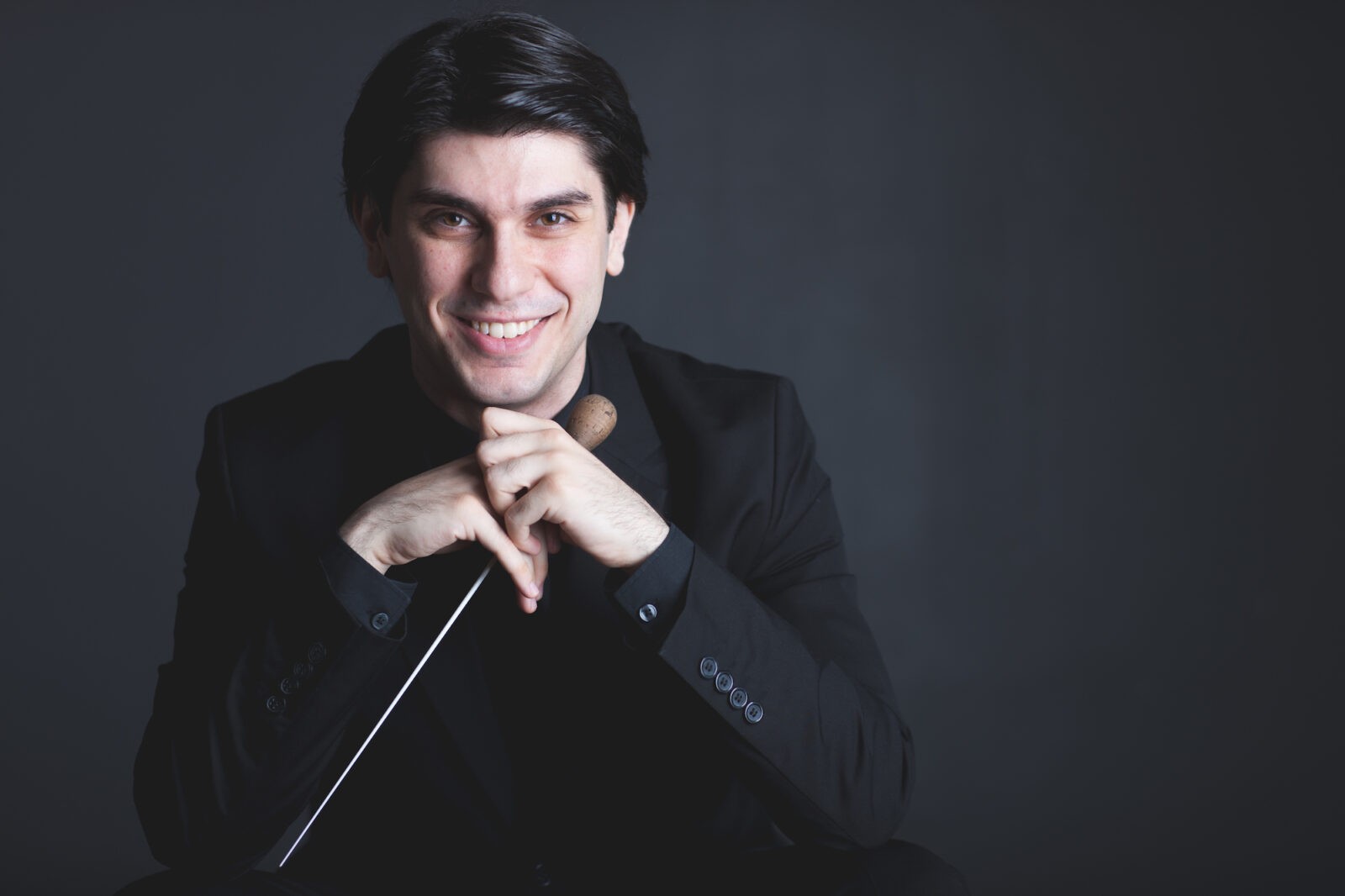Aram Demirjian, the Knoxville Symphony’s new conductor and music director, is ready for his first real season. Although he was appointed to the position in May 2016, he already had a calendar full of conducting engagements lined up. Except for the final three months, Demirjian was on again, off again in Knoxville.
Because of his schedule, Demirjian simply conducted the orchestra that Lucas Richman had built into a first-rate ensemble. Every one of the conductor candidates during the 2015-16 audition season told me the same thing. The Richman KSO is a very good orchestra with excellent musicians who not only came to rehearsals prepared and ready to work, but ready to dig deep into the music.
“Last year was a mix of trying to get to know the orchestra,” Demirjian said during a recent conversation. “They were trying to do the same with me. It was almost the same as an arranged marriage. You are stuck together. But it takes time to fall in love.”
One issue is that every conductor has his own style of conducting, a sort of visual musical vocabulary, what baton positions and hand gestures mean. It takes a while for musicians in big ensembles, often 70-80 strong, to learn to read them.
“We needed to get on the same page before we could grow together,” Demirjian said. “Last year, the last three months were the only concentrated block of time I had to work closely with the orchestra. I tried to condense everything we should learn in a year into a packed three months. Reflecting on it now, I think it was too intense. But we have had a summer break. I am a lot calmer now.”
That’s good. Because from many of the musicians’ point of view, things hadn’t gone so well. Musicians don’t adapt to change quickly. They had come from years rehearsing and performing under Richman, the consummate professional. A gentleman on and off the podium. But one who meant business. Friendly and gracious in person, but professionally reserved in public. Demirjian isn’t the complete opposite. But his public persona is more open and he obviously enjoys public attention. At only 31, Demirjian finds many of the musicians his senior.
Also, Demirjian hadn’t been their first choice. They would have chosen one of the older candidates with a proven track record and great communication with the orchestra. I’ll have to admit one of best KSO performances in my 35-year memory of critically listening to the KSO came during one of the candidate’s performances. And although Richman deserves full credit for the quality of the KSO now, I still remember an amazing performance of Mahler’s Sixth Symphony from many years ago during Kirk Trevor’s tenure.
In the final selection of the new music director, the decision-makers at the KSO chose to go with youth and the huge potential upside for Demirjian, over an older conductor with a proven track record, but maybe less of an aptitude to change with the times.
Demirjian is indeed a fresh face. He is enthusiastic on the podium and is totally comfortable talking to the audience. From the musicians’ perspective, maybe a little too much, since the longer he talks, the longer they sit there doing nothing. It’s a bothersome point to the musicians who are paid on a per-service basis, which is the majority of the orchestra.
On the other hand, as one of the KSO board members told me, “Aram is the first conductor we’ve ever had who comes out into the lobby before the concert and personally thanks people for coming.” That means a lot for an organization that is competing with all of the other activities in town for the spendable entertainment dollar. Fresh ideas and new approaches have to help.
So, this is Demirjian’s KSO now. It’s up to him to keep the orchestra on the growth trajectory that Richman set on a firm, upward course. One of the KSO players with years of experience told me that his feelings were, “Here comes a new, young one. I’ll have to prove myself all over again.” Perhaps, but Demirjian has to prove himself too.
Demirjian will have to learn the lesson of all young people who become the head of an organization, whether by selection or by birthright – being in control doesn’t mean controlling. The people you inherit who have been around awhile have experience. Make use of it. Gain the long-time orchestra members’ trust and confidence. Instill discipline in the younger musicians. Making great music takes work and it isn’t always fun.
Everyone will give you deference. You will have to earn their respect.

